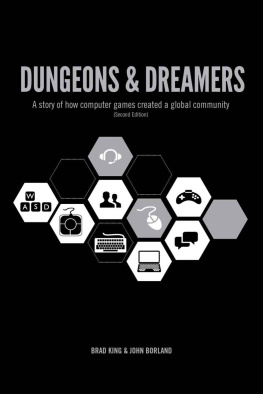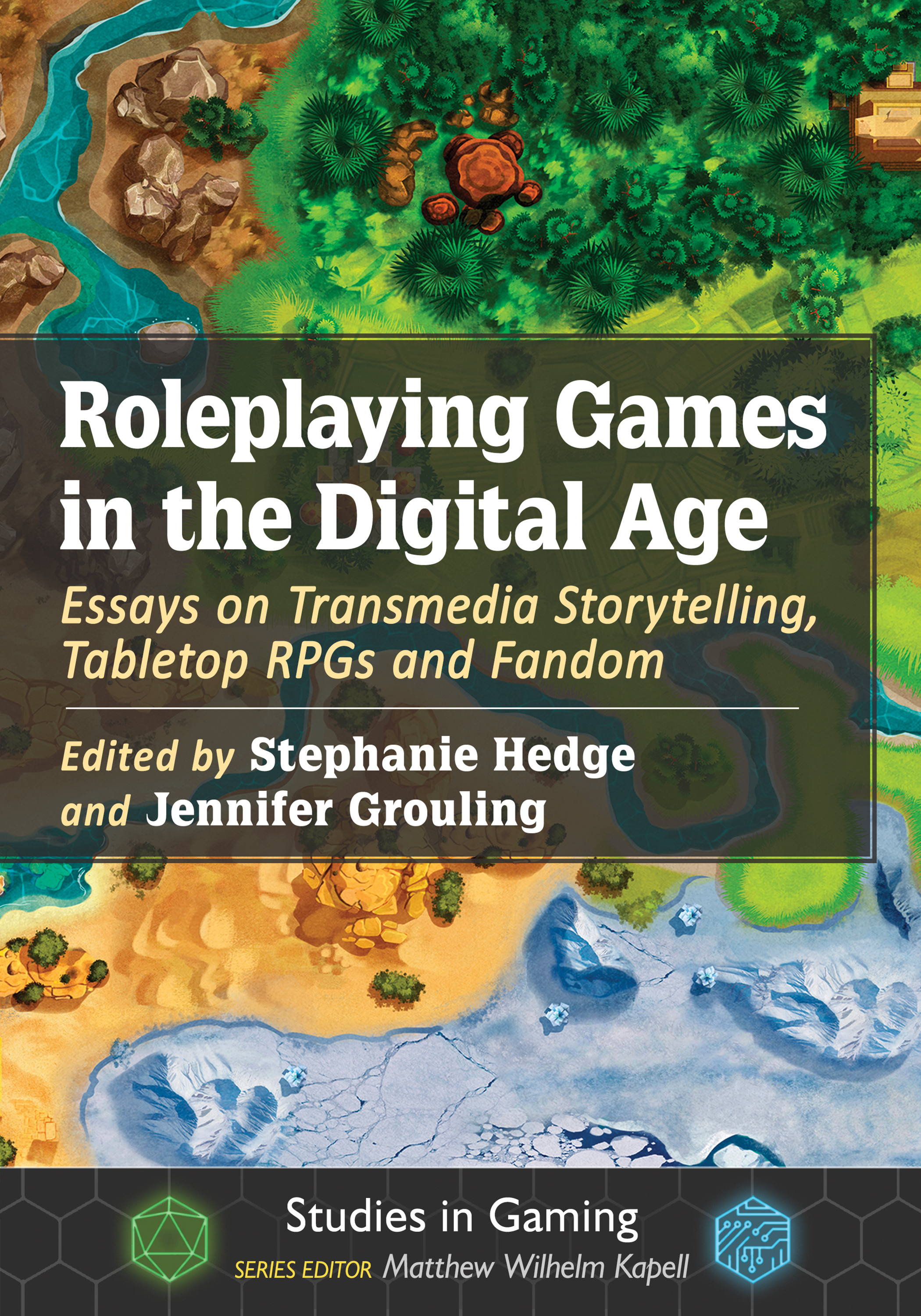Roleplaying Games in the Digital Age
Studies in Gaming
The Play Versus Story Divide in Game Studies: Critical Essays (Matthew Wilhelm Kapell, editor, 2016)
Player and Avatar: The Affective Potential of Videogames (David Owen, 2017)
Speedrunning: Interviews with the Quickest Gamers (David Snyder, 2017)
The Minds Behind the Games: Interviews with Cult and Classic Video Game Developers (Patrick Hickey, Jr., 2018)
The Postmodern Joy of Role-Playing Games: Agency, Ritual and Meaning in the Medium (Ren Reinhold Schallegger, 2018)
Responding to Call of Duty: Critical Essays on the Game Franchise (Nate Garrelts, editor, 2018)
Storytelling in the Modern Board Game: Narrative Trends from the Late 1960s to Today (Marco Arnaudo, 2018)
Storytelling in Video Games: The Art of the Digital Narrative (Amy M. Green, 2018)
Teach Like a Gamer: Adapting the Instructional Design of Digital Role-Playing Games (Carly Finseth, 2018)
Video Gaming in Science Fiction: A Critical Study (Jason Barr, 2018)
The Composition of Video Games: Narrative, Aesthetics, Rhetoric and Play (Johansen Quijano, 2019)
Forum-Based Role Playing Games as Digital Storytelling (Csenge Virg Zalka, 2019)
Narrative Design and Authorship in Bloodborne: An Analysis of the Horror Videogame (Madelon Hoedt, 2019)
The Pokmon Go Phenomenon: Essays on Public Play in Contested Spaces (Jamie Henthorn, Andrew Kulak, Kristopher Purzycki, Stephanie Vie, editors, 2019)
The Minds Behind Adventure Games: Interviews with Cult and Classic Video Game Developers (Patrick Hickey, Jr., 2020)
The Minds Behind Shooter Games: Interviews with Cult and Classic Video Game Developers (Patrick Hickey, Jr., 2020)
The Minds Behind Sports Games: Interviews with Cult and Classic Video Game Developers (Patrick Hickey, Jr., 2020)
Rerolling Boardgames: Essays on Themes, Systems, Experiences and Ideologies (Douglas Brown, Esther MacCallum-Stewart, editors, 2020)
Roleplaying Games in the Digital Age: Essays on Transmedia Storytelling, Tabletop RPGs and Fandom (Stephanie Hedge and Jennifer Grouling, editors, 2020)
What Is a Game? Essays on the Nature of Videogames (Gaines S. Hubbell, editor, 2020)
Whos in the Game? Identity and Intersectionality in Classic Board Games (Terri Toles Patkin, 2020)
Women and Video Game Modding: Essays on Gender and the Digital Community (Bridget Whelan, editor, 2020)
Forthcoming in the Series
Being Dragonborn: Critical Essays on the The Elder Scrolls V: Skyrim ( Edited by Mike Piero and Marc A. Ouellette, 2021 )
Playing with the Guys: Masculinity and Relationships in Video Games ( Marc A. Ouellette, 2021 )
Strictly Fantasy: The Cultural Roots of Tabletop Role-Playing Games ( Gerald Nachtwey, 2021 )
Watch Us Roll: Essays on Actual Play and Performance in Tabletop Role-Playing Games ( Shelly Jones, editor, 2021 )
Roleplaying Games in the Digital Age
Essays on Transmedia Storytelling, Tabletop RPGs and Fandom
Edited by Stephanie Hedge and Jennifer Grouling
Studies in Gaming
Series Editor Matthew Wilhelm Kapell

McFarland & Company, Inc., Publishers
Jefferson, North Carolina
Also of Interest: The Creation of Narrative in Tabletop Role-Playing Games , Jennifer Grouling Cover (2010)
This book has undergone peer review.
Library of Congress Cataloguing-in-Publication Data
Names: Hedge, Stephanie, 1984 editor. | Grouling, Jennifer, 1976 editor.
Title: Roleplaying games in the digital age : essays on transmedia storytelling, tabletop RPGs and fandom / edited by Stephanie Hedge and Jennifer Grouling.
Description: Jefferson, North Carolina : McFarland & Company, Inc., Publishers, 2021. | Series: Studies in gaming | Includes bibliographical references and index.
Identifiers: LCCN 2021000484 | ISBN 9781476676869 (paperback : acid free paper) ISBN 9781476642017 (ebook)
Subjects: LCSH: Fantasy gamesTechnological innovations. | Video games. | Virtual reality.
Classification: LCC GV1469.6 .R66 2021 | DDC 793.93dc23
LC record available at https://lccn.loc.gov/2021000484
British Library cataloguing data are available
ISBN (print) 978-1-4766-7686-9
ISBN (ebook) 978-1-4766-4201-7
2021 Stephanie Hedge and Jennifer Grouling. All rights reserved
No part of this book may be reproduced or transmitted in any form or by any means, electronic or mechanical, including photocopying or recording, or by any information storage and retrieval system, without permission in writing from the publisher.
Front cover image 2021 NextMarsMedia/Shutterstock
Printed in the United States of America
McFarland & Company, Inc., Publishers
Box 611, Jefferson, North Carolina 28640
www.mcfarlandpub.com
Table of Contents
Acknowledgments
Wed like to thank all of the people who came to the table with us as this book came together. Firstly, our contributors, without whom this book could not existyour passion, critical engagement, and enthusiasm for tabletop role-playing games allowed us to capture the state of the TRPG and together, tell a new story about what it means to play TRPGs in a digital age.
Secondly, wed like to thank the players and creators at all the tables featured in this book. Thank you to all of the role players who pulled up a chair for our research and generously granted permission for us to apply a critical lens to their fun games of Dungeons & Dragons . Thank you to the fan-artists, game designers, and podcasters who gave us amazing creations to enjoy and study. Special thanks to all of our interview participants who thoughtfully and generously shared their thoughts on creating, storytelling, and transmedia TRPGs: Isaac Childres, Nikki Valens, Nolan T. Jones, Griffin McElroy, Alex Schlitz, and Tracey Alvarez.
Thirdly, wed like to thank those who provided support along the way: Layla Milholen and the team at McFarland for their guidance; our peer reviewers for their comments; Zachary Dwyer for his transcription and proofreading; and Leigha Smith for her thoughtful edits.
Wed also like to thank the people sat around our own tabletopsour families and friends who spin stories with us: our partners in everything, Eva Grouling Snider, Jordan Blahnik; our furry friends Henry, Graham, Angus, Damon, and Ghost; and our own gaming friends too many to mention.
Finally, wed like to thank all of those who continue to create new and inviting tabletops, who continue to weave stories out of nothing, including all of those who will be inspired by the wonderful essays featured here.
Introduction
Structure to the Stories
Stephanie Hedge and Jennifer Grouling
On any given Saturday in the mid2000s, you could find Jennifer and five friends gathered around a dining room table deeply engaged in the adventures of her dragon-born sorceress Whisper and her companions Cuthalion, Maureen, David, and Fletch. Together they negotiated with orcs for the safety of the local town, played songs at the Foppish Wererat tavern, investigated mysteries in the town of Gateway, and fought evil along the way. Scott, the Game Master (GM), led their adventures in a world he created called Sorpreador and each session built on the story started at the last gathering. Their collaborative storytelling was guided by the D&D gaming system: a pen-and-paper character sheet indicated scores that affected how likely they were to succeed at certain tests of strength or will and the physical roll of the dice helped determine the outcome of the characters actions. The player characters (PCs) were physically represented by metal miniature figurines on a large physical game mat where the GM could draw outlines of settings with an erasable marker. Play was ephemeral: the text created by each session existed only in the memories of the participants, fading over time like those ever-stubborn marker lines on the erasable game mat.


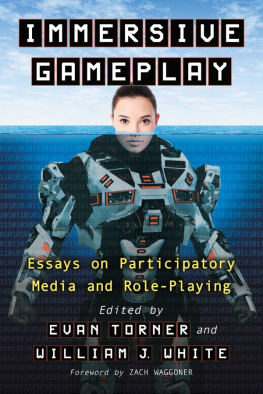
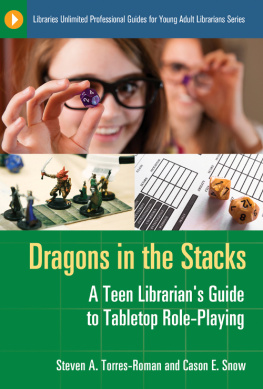
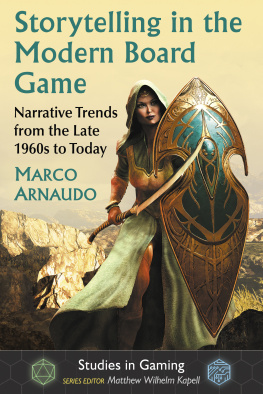
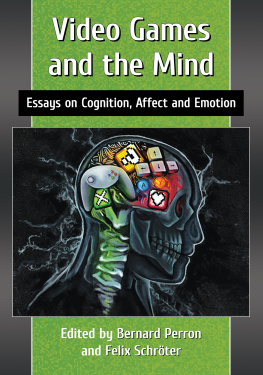
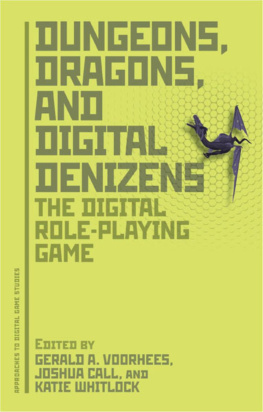

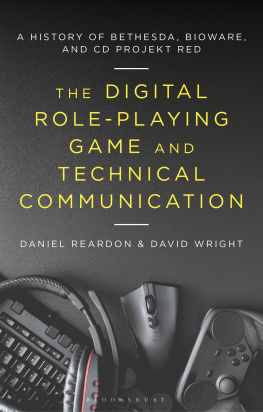
![Ethan Ham [Ethan Ham] - Tabletop Game Design for Video Game Designers](/uploads/posts/book/119417/thumbs/ethan-ham-ethan-ham-tabletop-game-design-for.jpg)
